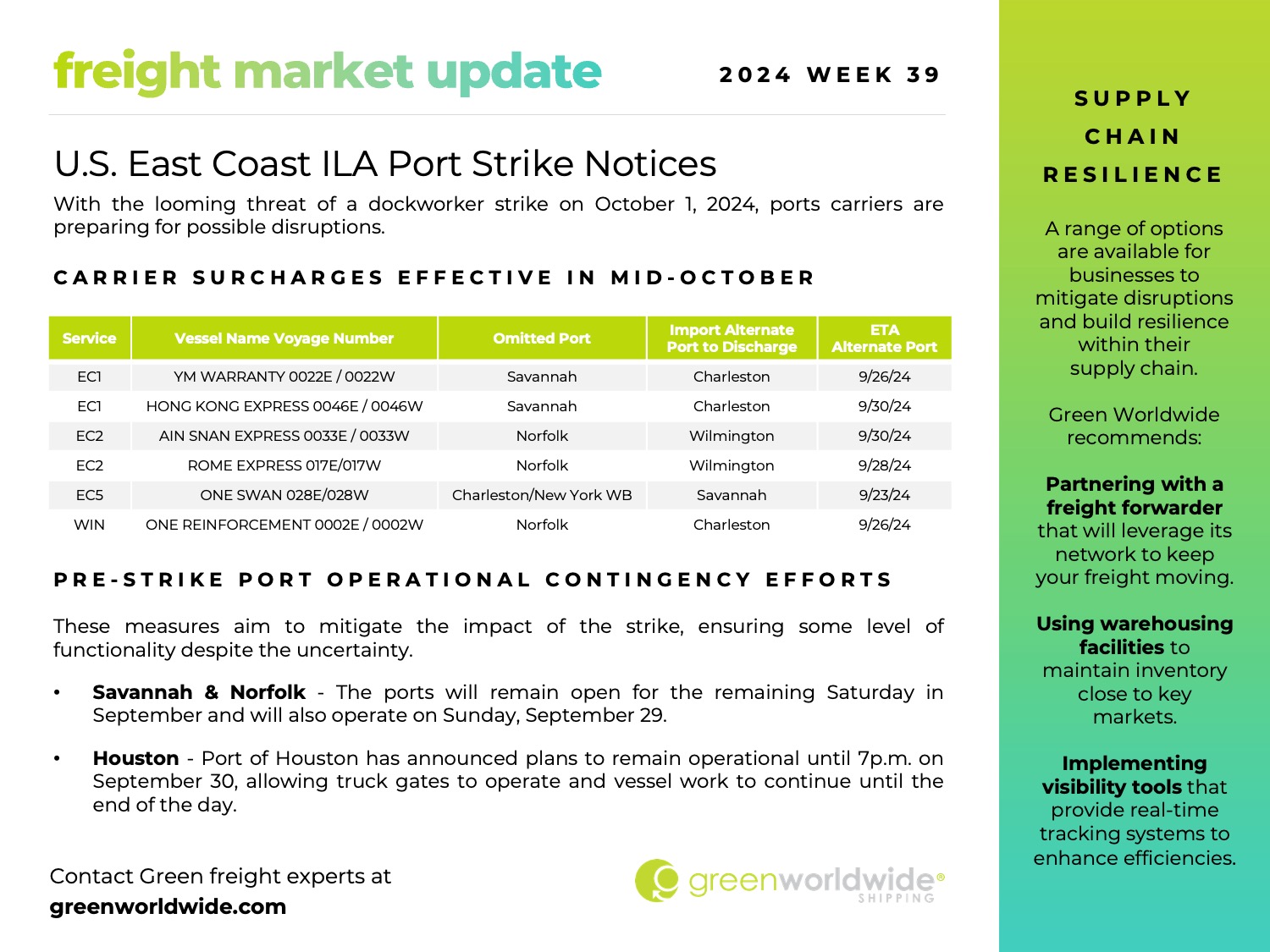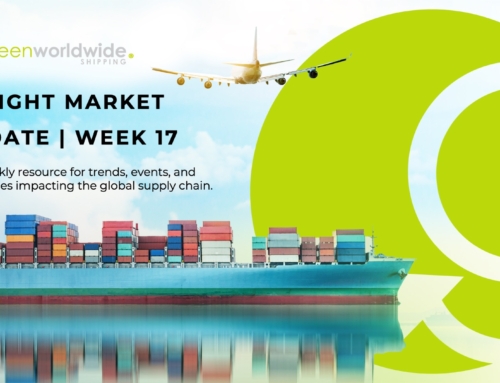Typhoons, port congestion, and threats of an impending labor strike are driving market tension in Week 39.
U.S. EAST COAST ILA PORT STRIKE NEWS
With the looming threat of a dockworker strike on October 1, 2024, ports and carriers are preparing for possible disruptions with extended hours, port omissions, and carrier surcharges.
Carrier Surcharges Effective In Mid-October
Pre-Strike Port Operational Contingency Efforts
These measures aim to mitigate the impact of the strike, ensuring some level of functionality despite the uncertainty.
Savannah & Norfolk – The ports will remain open for the remaining Saturday in September and will also operate on Sunday, September 29.
Houston – Port of Houston has announced plans to remain operational until 7p.m. on September 30, allowing truck gates to operate and vessel work to continue until the end of the day.
U.S. WEST COAST PORT CONGESTION WOES
The capacity of the U.S. West Coast (USWC) ports has become increasingly constrained due to the rising volume of cargo being diverted from the U.S. East Coast (USEC). Many sailings have been operating near full capacity in late September, and this trend is expected to continue, with rolling issues becoming more frequent, particularly after China’s Golden Week holiday. This period is anticipated to see a rise in blank sailings during weeks 40 and 41. There are also significant delays in cargo handling on the USWC, with some containers at ports like Los Angeles experiencing dwell times exceeding 20 days before being loaded onto rail. The surge in cargo volume destined for the USWC is contributing to this backlog, and the limited capacity of these ports is increasingly unable to manage the redirected shipments effectively. As the peak holiday shipping season approaches, the strain on both port operations and rail infrastructure is likely to intensify, causing further delays and operational disruptions.
TYPHOONS CONTINUE TO BLAST ASIA
Ports in southern China and Vietnam continue to recover from the impact of Typhoon Yagi, while multiple key ports in China, including Ningbo (CNNGB) and Shanghai (CNSHA), were severely affected by Typhoon Bebinca last week. Bebinca, the most powerful typhoon to strike Shanghai since 1949, forced the closure of both Shanghai and Ningbo ports for up to 64 hours between September 14 and 16. This has resulted in significant berth congestion, with vessels experiencing delays of 3 to 4 days in Shanghai and 2 to 3 days in Ningbo. The disruptions in these ports are expected to persist for at least another week, as tropical storm PULASAN, further exacerbated the situation in Eastern China.
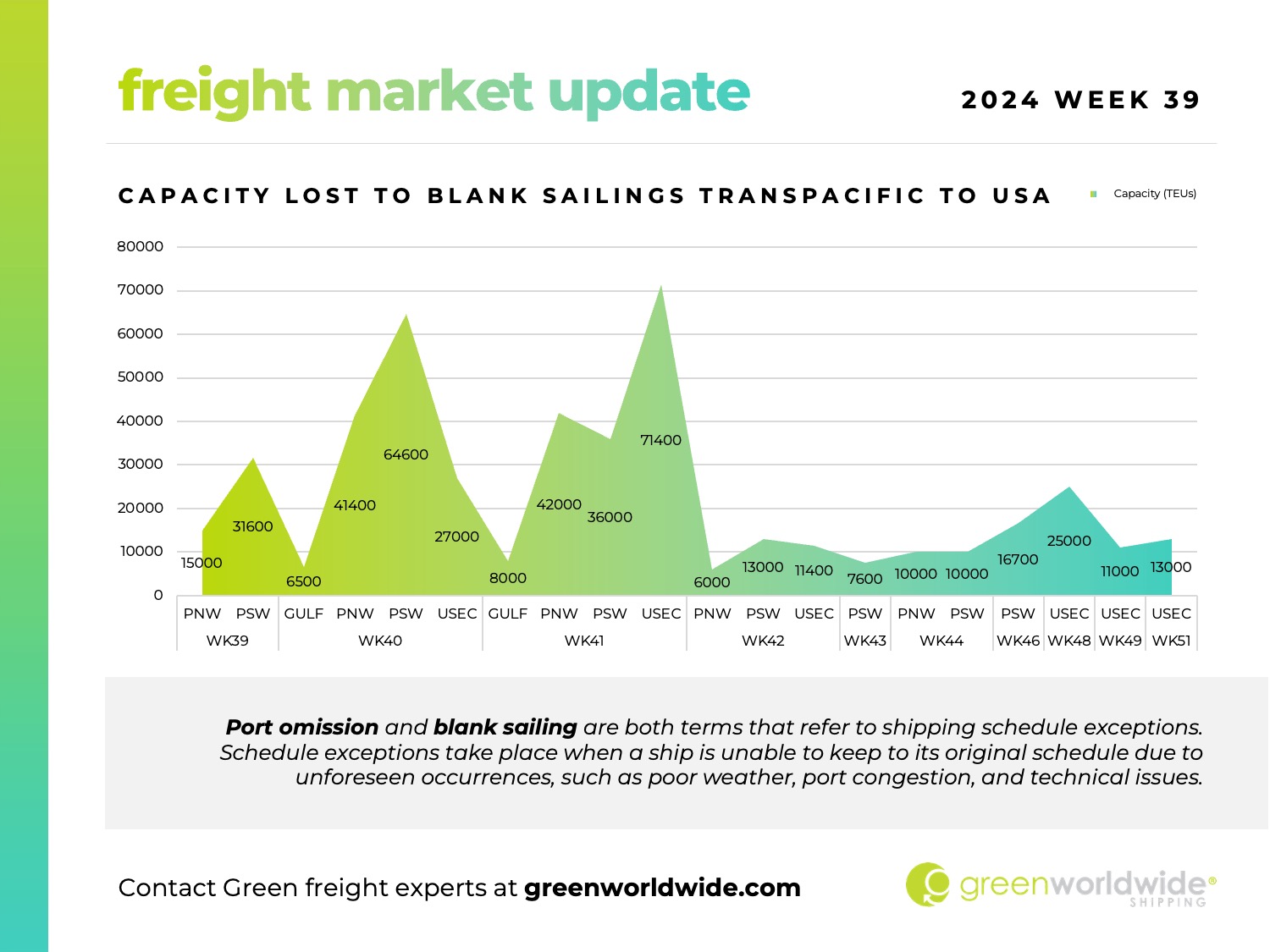
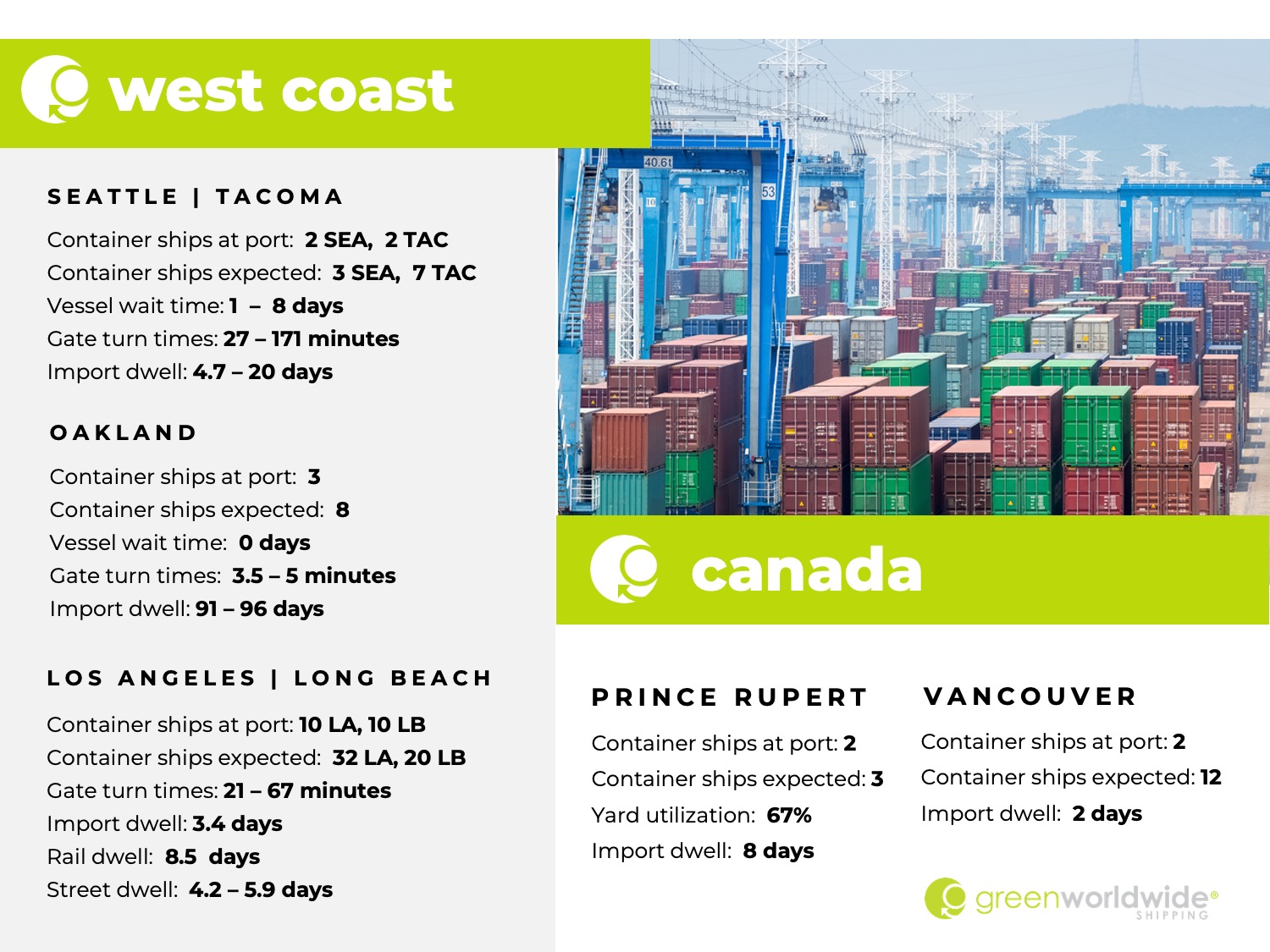
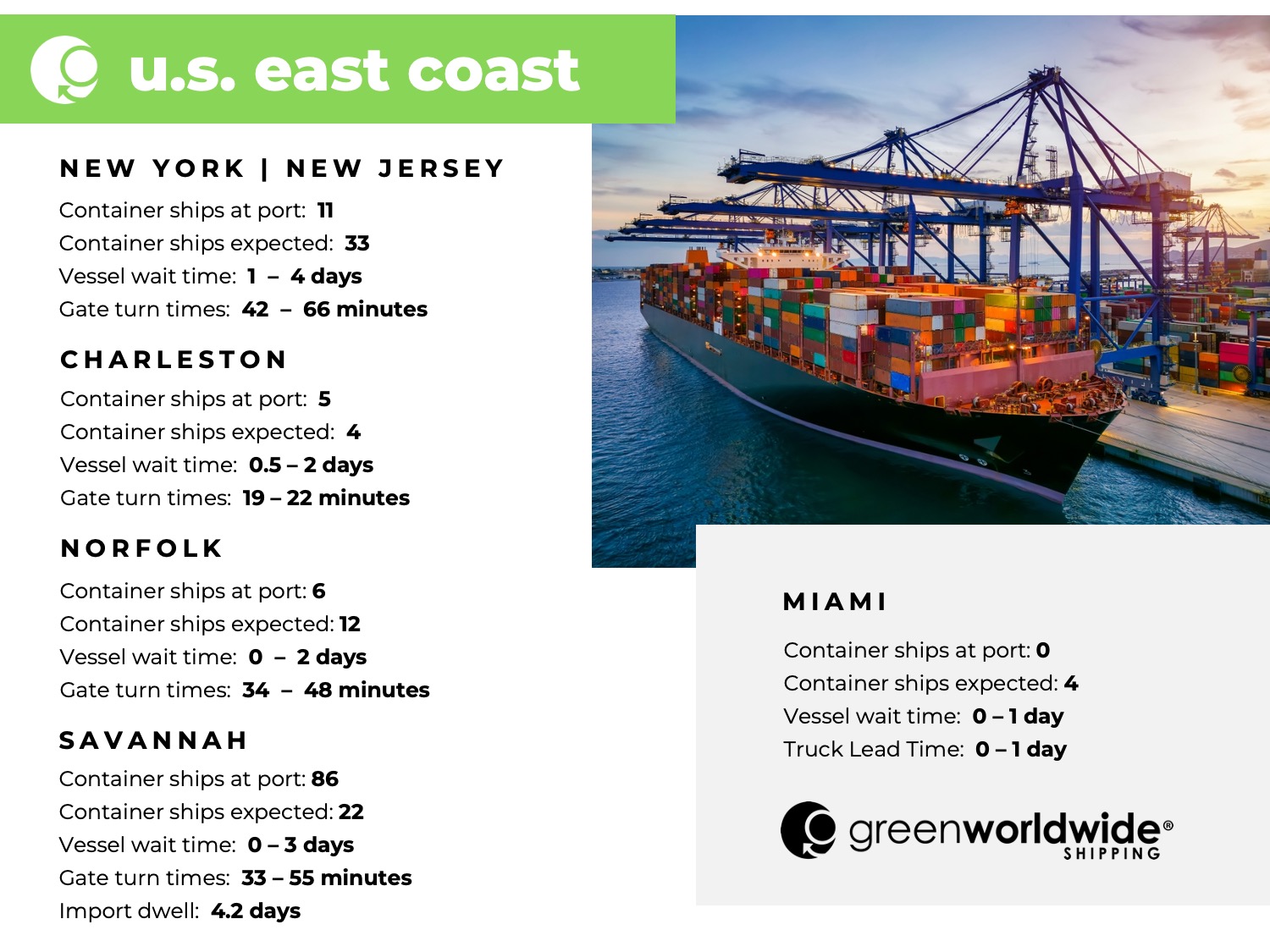
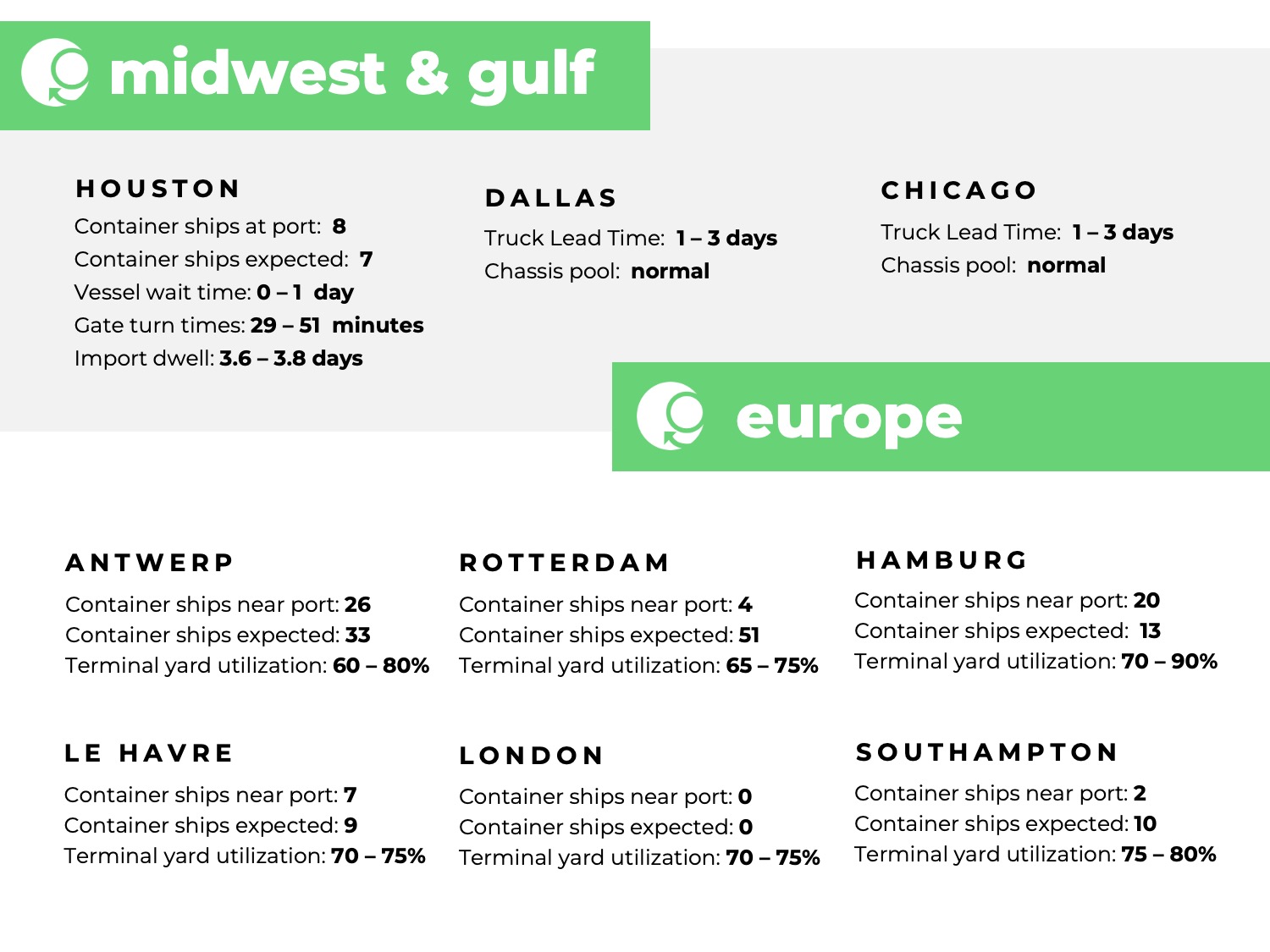
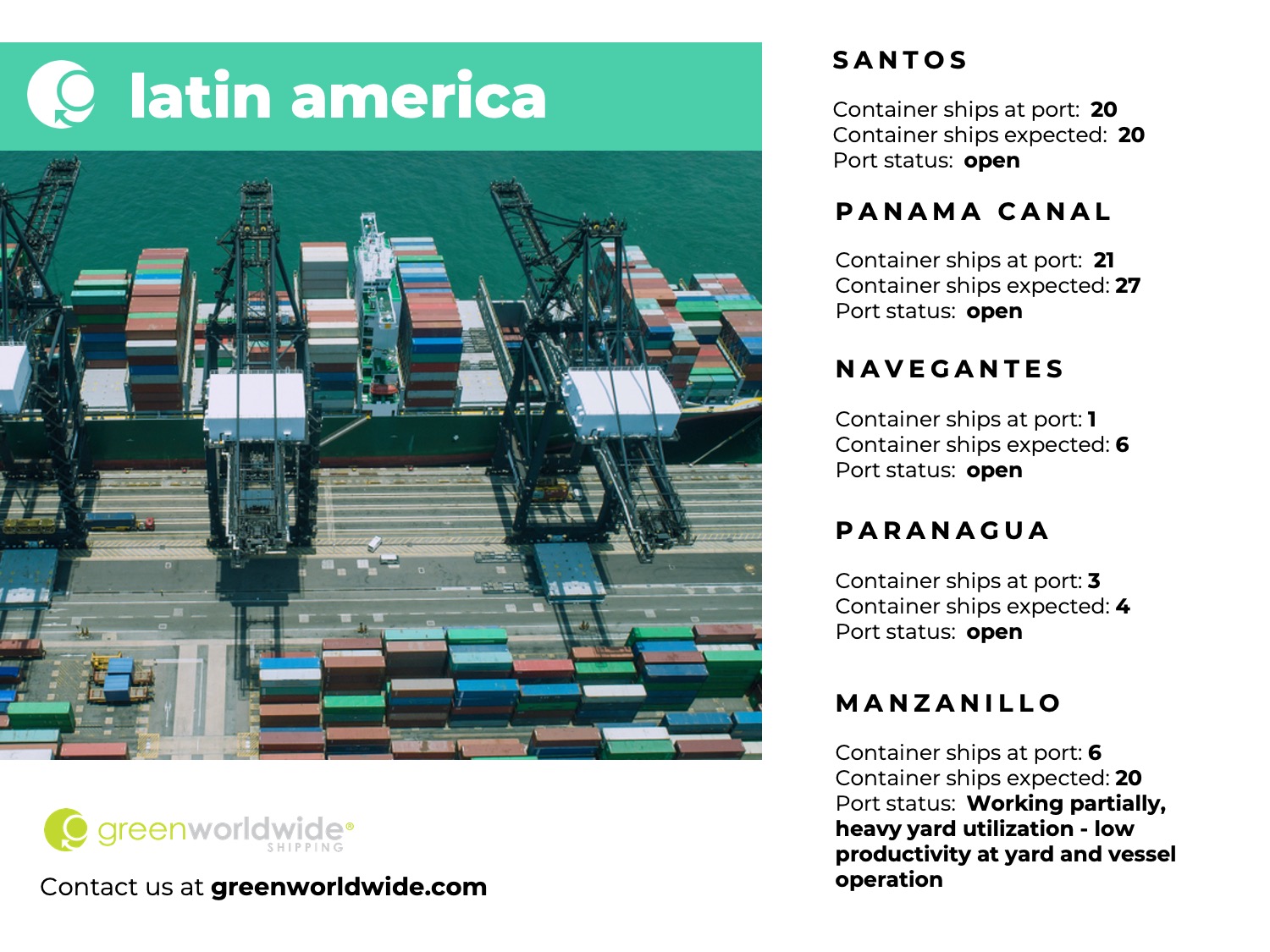
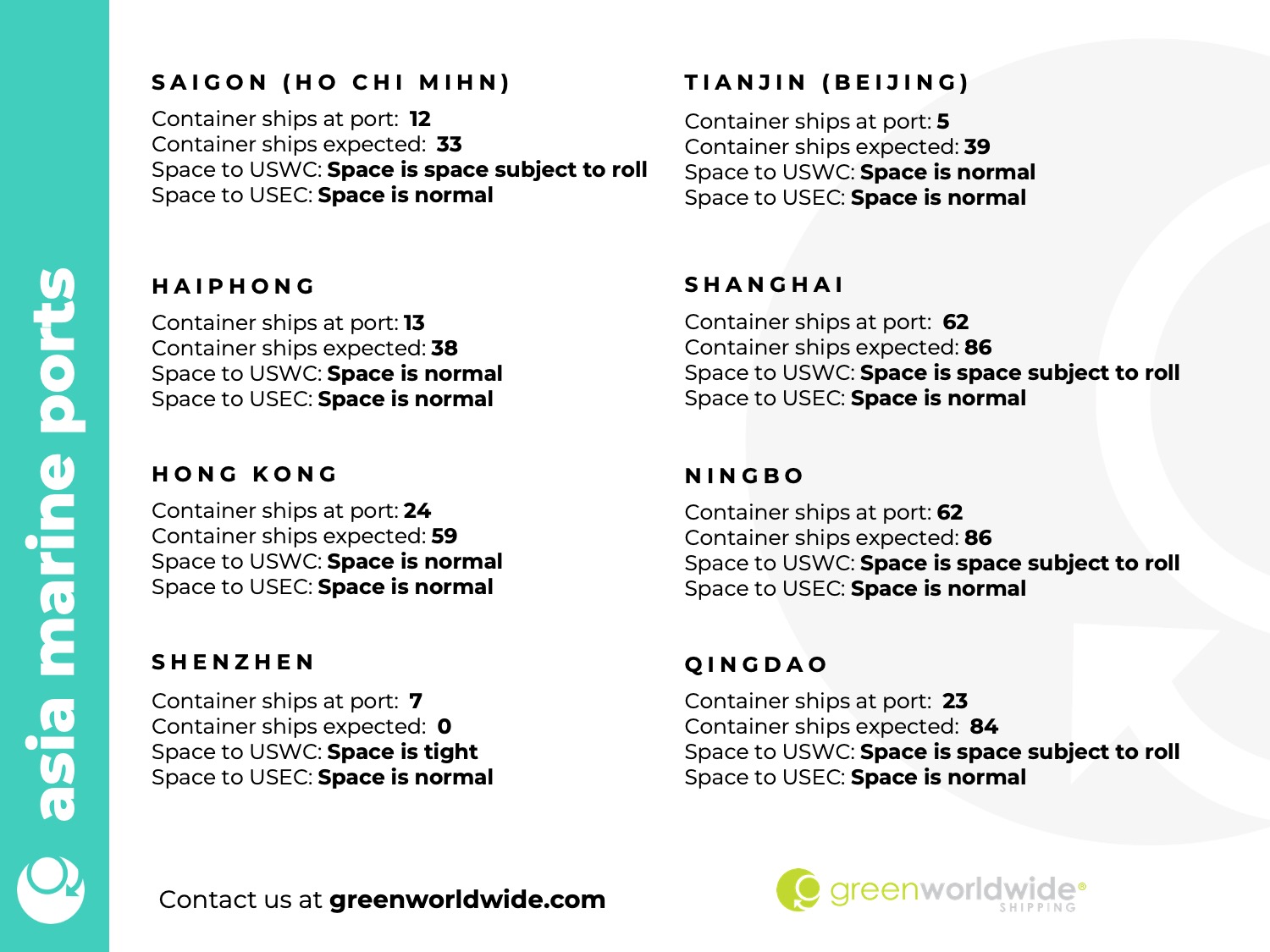
Stay up-to-date on freight news with Green’s Weekly Freight Market Update by following us on LinkedIn. For continuous updates, make sure to check out our website at greenworldwide.com.

